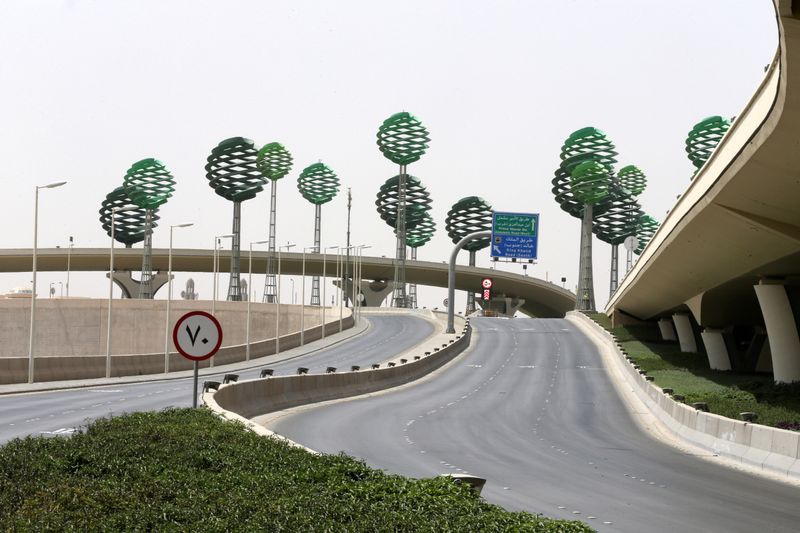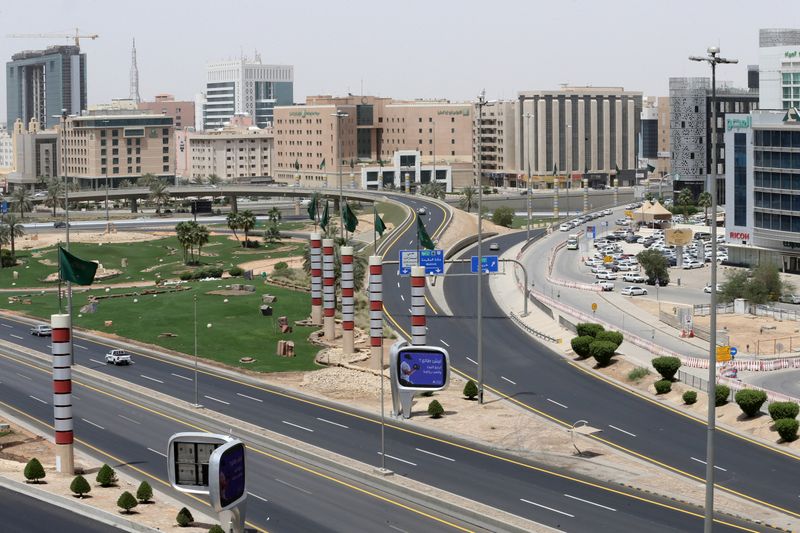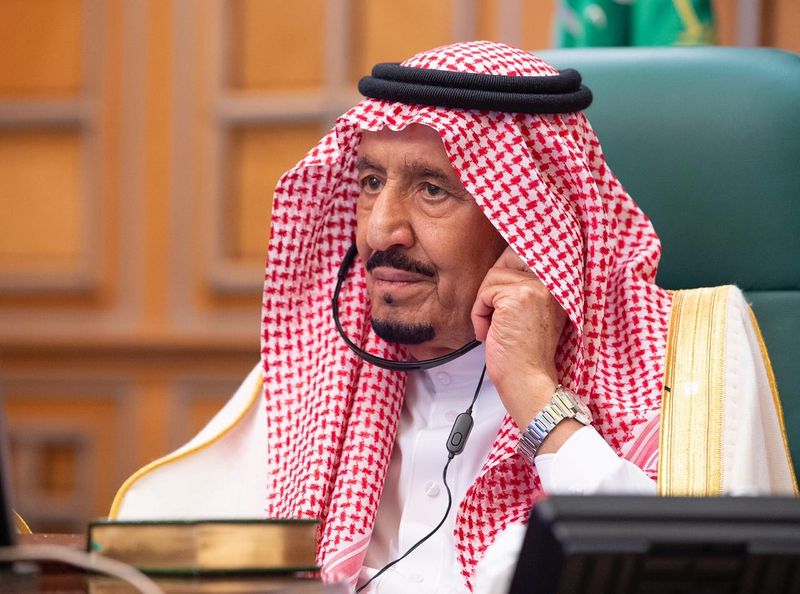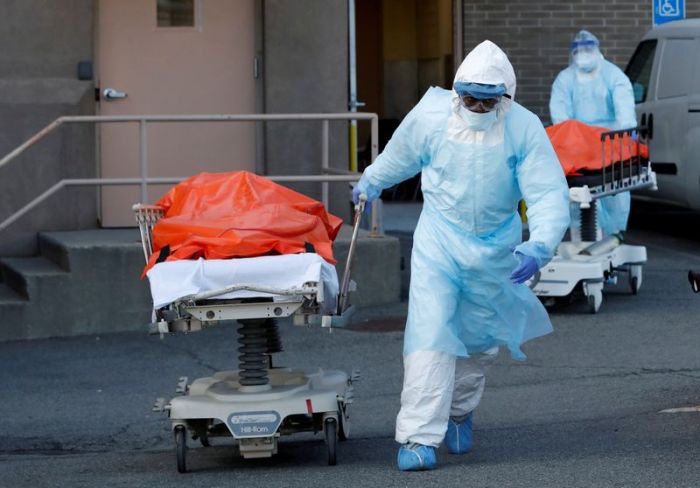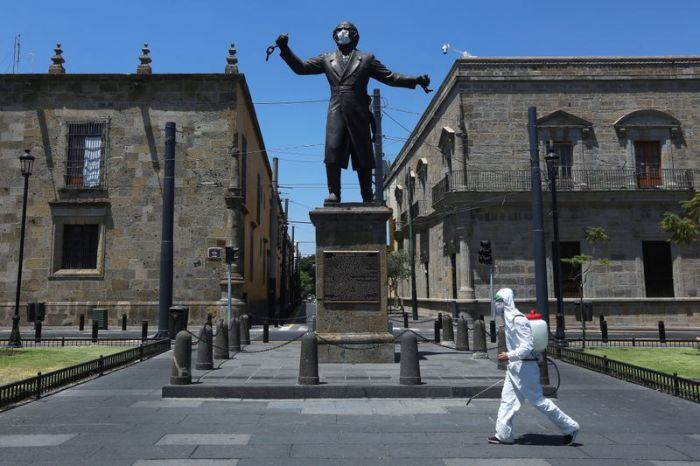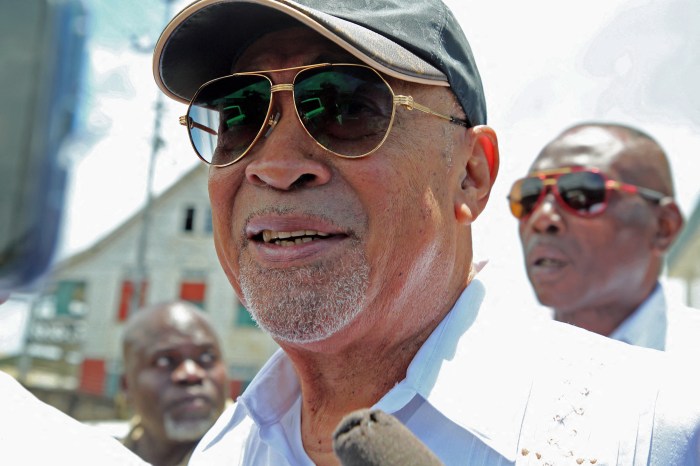RIYADH/DUBAI (Reuters) – Saudi Arabia indefinitely extended a curfew due to the coronavirus on Sunday amid a surge of new infections, and the United Arab Emirates warned of possible action against countries refusing to allow migrant workers to be repatriated.
Since placing the capital Riyadh and other big cities under 24-hour curfew on Monday, Saudi Arabia has reported more than 300 new cases per day. The nationwide curfew, initially set for three weeks, runs from 3 p.m. to 6 a.m everywhere else. For both this and the 24-hour curfew, residents may go out only for essential needs.
The interior ministry announced new permits for vital personnel to move around. Violators face fines and jail time.
Saudi Arabia has recorded 4,462 infections with 59 deaths, the highest among the six-nation Gulf Cooperation Council, where the total neared 14,100 with 96 deaths.
It expects it could reach 200,000 cases in coming weeks. It has halted international passenger flights, suspended the year-round umrah pilgrimage, and closed most public places.
Other Gulf Arab states have taken similar precautions and have seen the virus spread among low-wage foreign workers, many living in overcrowded accommodation. Millions of migrant labourers, mainly from Asian countries, including Nepal, India and the Philippines, are among the region’s large expatriate population.
Bahrain said 45 of 47 new cases reported on Sunday were foreign workers.
The United Arab Emirates, the region’s tourism and business hub, has the second highest regional load at 3,736 cases and 20 deaths.
FOREIGN WORKERS
The UAE warned it would review labour ties with countries refusing to take back citizens, including those who lost their jobs or were put on leave, and said it was considering strict quotas for work visas issued to nationals of those states.
“Several countries have not been responsive about allowing back their citizens who have applied to return home under the current circumstances,” the Human Resources and Emiratisation Ministry said, without specifying which countries.
India’s ambassador to the UAE said on Saturday the country cannot repatriate large numbers of nationals while trying to combat the virus at home.
“Once the lockdown in India is lifted, we will certainly help them get back to their hometowns and their families,” Pavan Kapoor told the Gulf News daily.
Pakistan’s ambassador said the embassy was waiting for permission from Islamabad for repatriation flights and was hoping for “positive news soon”.
“We are very keen to bring Pakistanis back but we need to finalise our treatment and quarantine facilities,” Ghulam Dastgir told Reuters.
Aiming to contain the spread among foreign workers, Qatar has locked down a large section of an industrial area, Dubai sealed off two commercial districts and Oman closed off its Muscat governorate, which includes the capital.
Kuwait said late on Saturday airlines could operate outbound flights to repatriate foreigners.
The Saudi Food and Drug Authority approved conducting internationally refereed clinical trials at five hospitals to determine the effectiveness of treating the coronavirus with antivirals including those used for malaria and HIV.
(Reporting by Nayera Abdallah, Alexander Cornwell, Alaa Swilam and Stephen Kalin; Writing by Ghaida Ghantous; Editing by Jason Neely, Giles Elgood and Frances Kerry)

